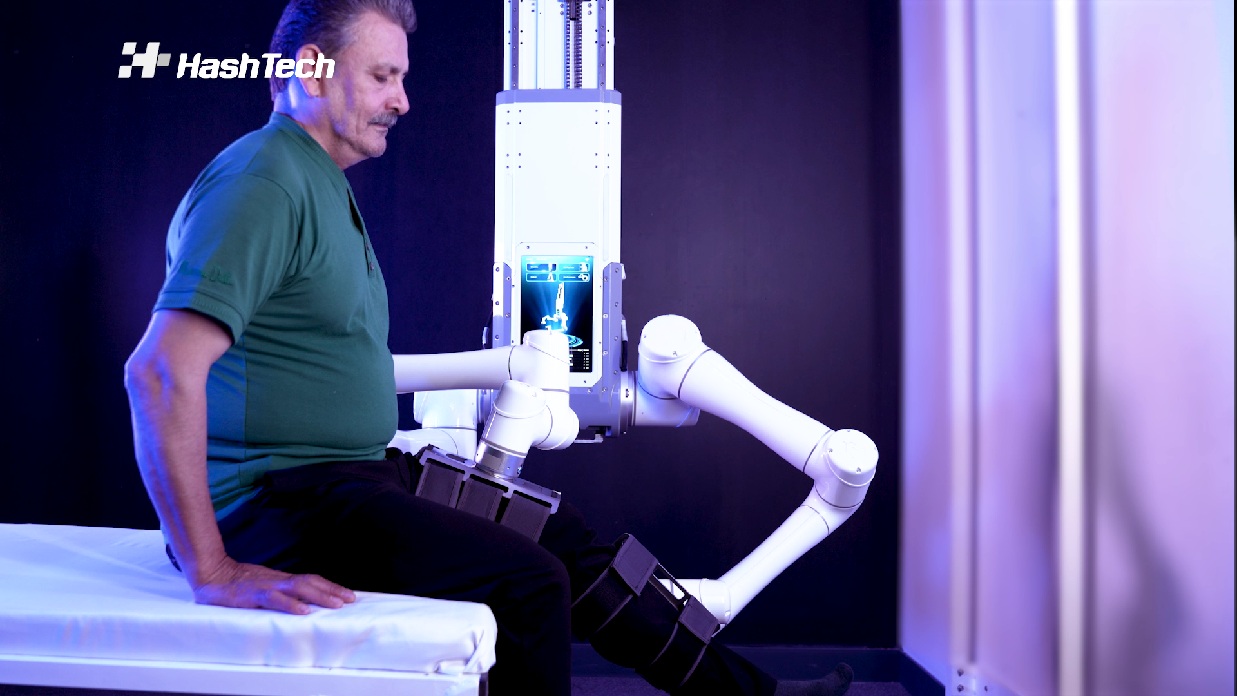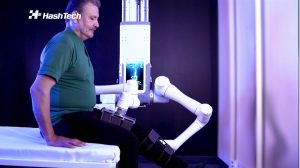
Revolutionary Robotic Knee Rehabilitation for Seniors 65+: Restoring Mobility and Independence
Maintaining mobility in later life is essential for independence, dignity, and overall well-being. Yet millions of elderly individuals across Europe face severe limitations in knee flexion and extension due to arthritis, surgery, or inactivity. Without timely access to effective therapy, these challenges can quickly escalate into loss of independence and increased caregiver burden. Innovative solutions like robotic knee rehabilitation are reshaping elderly care, offering safer and more sustainable therapy for patients and providers alike.
Why Knee Flexion-Extension is Crucial for Seniors?
Knee flexion and extension are essential for elderly mobility—they enable walking, standing, stair climbing, and getting in and out of chairs. As people age, conditions like osteoarthritis, post-surgical stiffness after total knee arthroplasty (TKA), and prolonged immobility often lead to severe limitations.
Clinical research shows that around 40% of Europeans aged 70+ experience significant knee flexion-extension restrictions. Without structured robotic knee rehabilitation or consistent therapy, seniors face reduced independence, increased fall risk, and accelerated muscle weakness.
The Rehabilitation Challenge: Limits of Traditional Therapy
Traditional knee rehabilitation remains effective, but it faces critical barriers in today’s healthcare system:
-
Staff shortages: Europe has a shortfall of more than 1.2 million nurses and therapists, limiting access to timely rehabilitation.
-
Caregiver strain: Nurses and physiotherapists are often required to manually assist repetitive knee exercises, leading to back strain, overuse injuries, and burnout.
-
Inconsistent therapy sessions: Seniors may receive fewer than the recommended 10–20 therapy sessions over 5–7 weeks, which reduces treatment effectiveness.
-
Delayed access to care: Many seniors wait weeks before beginning structured musculoskeletal therapy, leading to stiffness and slower recovery.
This makes it clear why robotic knee rehabilitation is needed as a scalable, sustainable solution.
The ErgoBot Solution: Robotic-Assisted Knee Rehabilitation
ErgoBo introduces a new era of robotic-assisted rehabilitation for knee flexion-extension therapy. Designed with both patients and caregivers in mind, it provides:
-
Guided passive and active therapy: From day one after immobility or surgery, patients begin safe, controlled exercises.
-
Adaptive support: The system adjusts resistance or assistance to match each patient’s condition.
-
Consistent, measurable results: Objective data on range of motion, repetitions, and strength progression supports evidence-based care.
-
High-frequency therapy: Enables multiple daily sessions without overburdening caregivers, supporting faster recovery.
-
Integration with #TeleRehabilitation: Therapists can remotely supervise sessions, extending digital health access to underserved areas.
Benefits Beyond Movement: What ErgoBot Brings to Patients & Caregivers
For Patients:
-
Faster recovery of knee flexion-extension and overall mobility
-
Reduced pain and stiffness through consistent, high-quality sessions
-
Safer daily activities like standing, walking, and stair climbing
-
Improved independence and confidence in everyday life
For Caregivers and Clinics:
-
Less physical strain and lower risk of injury during musculoskeletal therapy
-
Ability to manage more patients efficiently, even during staff shortages
-
Reliable therapy quality, thanks to robotic precision
-
Opportunities to expand services through tele-rehabilitation and digital health platforms
Conclusion: Toward Sustainable, Innovative Elderly Care
Knee flexion-extension therapy is vital for seniors, but shortages of therapists and the physical burden on caregivers threaten the sustainability of current systems. By adopting robotic knee rehabilitation tools like ErgoBot, nursing homes, hospitals, and rehabilitation centers can ensure:
-
Elderly mobility is restored faster
-
Caregiver support is prioritized, reducing workplace injuries
-
Senior care solutions are scalable, even in resource-limited settings
-
Robotic-assisted rehabilitation becomes an integral part of modern healthcare
With ErgoBot, elderly rehabilitation evolves into a safer, more effective, and sustainable practice—bringing together the best of physiotherapy technology, digital health, and healthcare innovation.
Regional Impact & Availability: Hash-Tech is proud to be at the forefront of Digital Health in Germany, specifically driving the modernization of healthcare infrastructure across Bayern (Bavaria). Our established deployments in Munich, including our landmark work at Damenstift am Luitpoldpark, serve as the regional gold standard for integrating AI and Robotics into daily care. We are committed to scaling these innovations to healthcare providers throughout Germany.
Ready to see how ErgoBot can transform Knee flexion/Extension rehabilitation in your practice?

